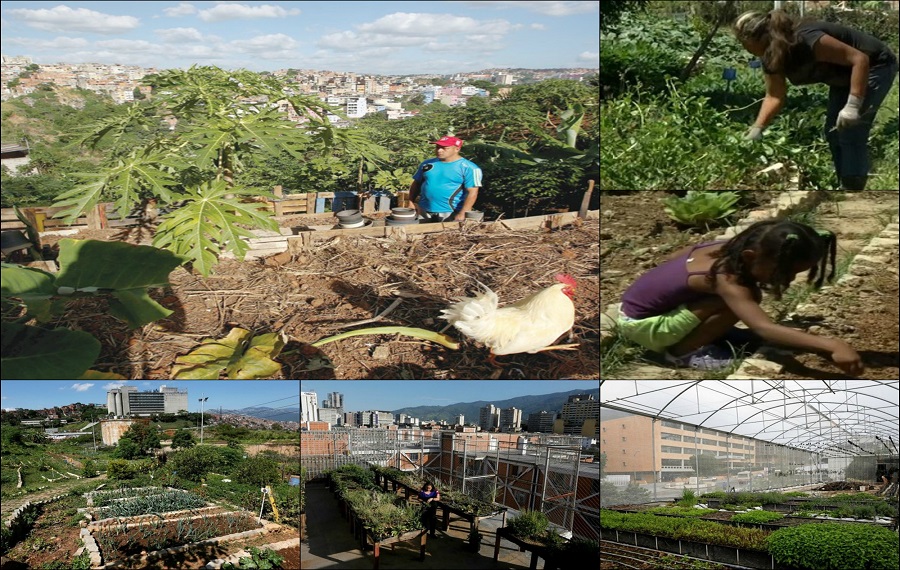Amid economic hard times, city farming, an absolutely new method in agriculture is developed to tackle food shortage problems in Venezuela.
Fruits and vegetable gardens are sprouting everywhere in urban centres after Venezuela’s pumpkin-growing socialist president exhorts compatriots to grow fruits and vegetables on balconies, roofs and in barracks across the country.
Venezuela, a substantial net exporter of crude petroleum and a founding member of the Organization of Petroleum Exporting Countries (OPEC) has a major influence on global oil prices, is now resorting to agriculture to offset widespread of food shortages.
“We need to plant to ensure food sovereignty,” President Nicolas Maduro said, recounting how he and his wife harvested pumpkins on their patio for a soup.
His government’s “Great Agro-Venezuela Mission” is promoting city farming to offset shortages which have led to looting and riots as the OPEC country undergoes a major economic crisis.
Unlike Papua New Guinea’s population, 83 percent of the inhabitants of Venezuelans live in cities and only 17 percent live in the countryside.
Highlighting the need to build an urban productive culture, President Maduro announced urban agriculture is necessary.
In the first data on the new push, Maduro’s government boasts that in the last three months, some 135,000 Venezuelans have produced 273 tonnes of vegetables, fruits and herbs in urban settings.
The production seems well short of this year’s goal of 3,500 tonnes, but some participants are enthusiastic.
“If all communities began to cultivate, it would help to combat the high cost of living and food shortages,” said 69-year-old Luisana Galvis, a retired administrator who helps produce 30 different types of vegetable on a state-owned plot in a West Caracas slum.
Critics, though, say the project is laughably inadequate given the scale of Venezuela’s problems and absurd in a vast and fertile nation that was once a major exporter of coffee.
“Forty thousand hectares of productive land in this country and Nicolas’ solution is urban agriculture!” scoffed two-time opposition presidential candidate Henrique Capriles, who accuses the government of wrecking rural output with nationalizations.
Even some who have long grown their own food are dubious of Maduro’s efforts to help solve Venezuela’s unprecedented crisis by emulating their city gardens.
“It’s illogical to have a grand plan for urban agriculture given how fertile the land is in Venezuela,” said Omar Sharam, owner of the upmarket Casa Bistro restaurant which cultivates many of its own ingredients on a city plot.
According to Reuters, oil gradually took over Venezuela’s economy since its discovery in the country a century ago, and now makes up 94 percent of foreign income, that has led to the neglect of other sectors, including agriculture, and made Venezuela dependent on imports.
Vast swathes of arable land are underused.
Since Maduro was elected three years ago to succeed the late socialist leader Hugo Chavez, his popular mentor, Venezuela’s economy has deteriorated rapidly with a deep recession and widespread shortages.
Mobs outside shops screaming, “We want food!” and hoping for limited bags of pasta and rice have become commonplace across the South American country of 30 million.
The government blames the crisis on an “economic war” led by opposition business leaders and the United States.
Critics, however, point the finger at bad economic policy and over-reliance on oil.
With its new urban food push, Venezuela is attempting to follow in the footsteps of Cuba, its closest ally, which pioneered sustainable agriculture during the so-called “Special Period” in the 1990’s after the collapse of its Cold War benefactor, the Soviet Union.


